

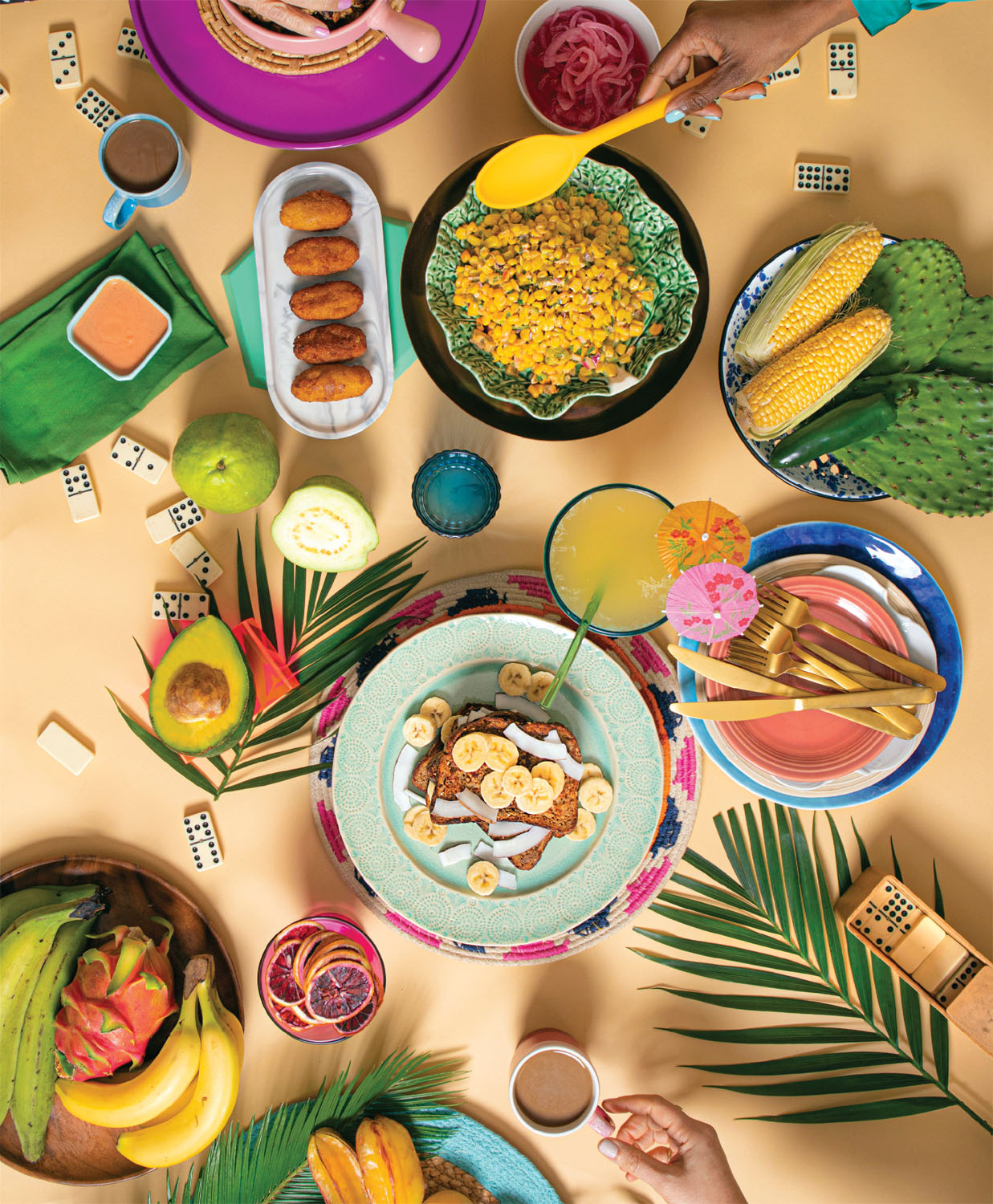
 Copyright 2023 by Karla Salinari Photography 2023 by Zuleika Acosta All rights reserved. No part of this book may be reproduced in any manner without the express written consent of the publisher, except in the case of brief excerpts in critical reviews or articles. All inquiries should be addressed to Skyhorse Publishing, 307 West 36th Street, 11th Floor, New York, NY 10018. Skyhorse Publishing books may be purchased in bulk at special discounts for sales promotion, corporate gifts, fund-raising, or educational purposes. Special editions can also be created to specifications. For details, contact the Special Sales Department, Skyhorse Publishing, 307 West 36th Street, 11th Floor, New York, NY 10018 or .
Copyright 2023 by Karla Salinari Photography 2023 by Zuleika Acosta All rights reserved. No part of this book may be reproduced in any manner without the express written consent of the publisher, except in the case of brief excerpts in critical reviews or articles. All inquiries should be addressed to Skyhorse Publishing, 307 West 36th Street, 11th Floor, New York, NY 10018. Skyhorse Publishing books may be purchased in bulk at special discounts for sales promotion, corporate gifts, fund-raising, or educational purposes. Special editions can also be created to specifications. For details, contact the Special Sales Department, Skyhorse Publishing, 307 West 36th Street, 11th Floor, New York, NY 10018 or .
Skyhorse and Skyhorse Publishing are registered trademarks of Skyhorse Publishing, Inc., a Delaware corporation. Visit our website at www.skyhorsepublishing.com. 10 9 8 7 6 5 4 3 2 1 Library of Congress Cataloging-in-Publication Data is available on file. Cover design by David Ter-Avanesyan Cover photography by Zuleika Acosta Food styling by Sophia Loch Art direction (photography, layout) by Faride Mereb Print ISBN: 978-1-5107-7271-7 Ebook ISBN: 978-1-5107-7272-4 Printed in China Dedicated to my daughter, Carolina. You inspire me every day. 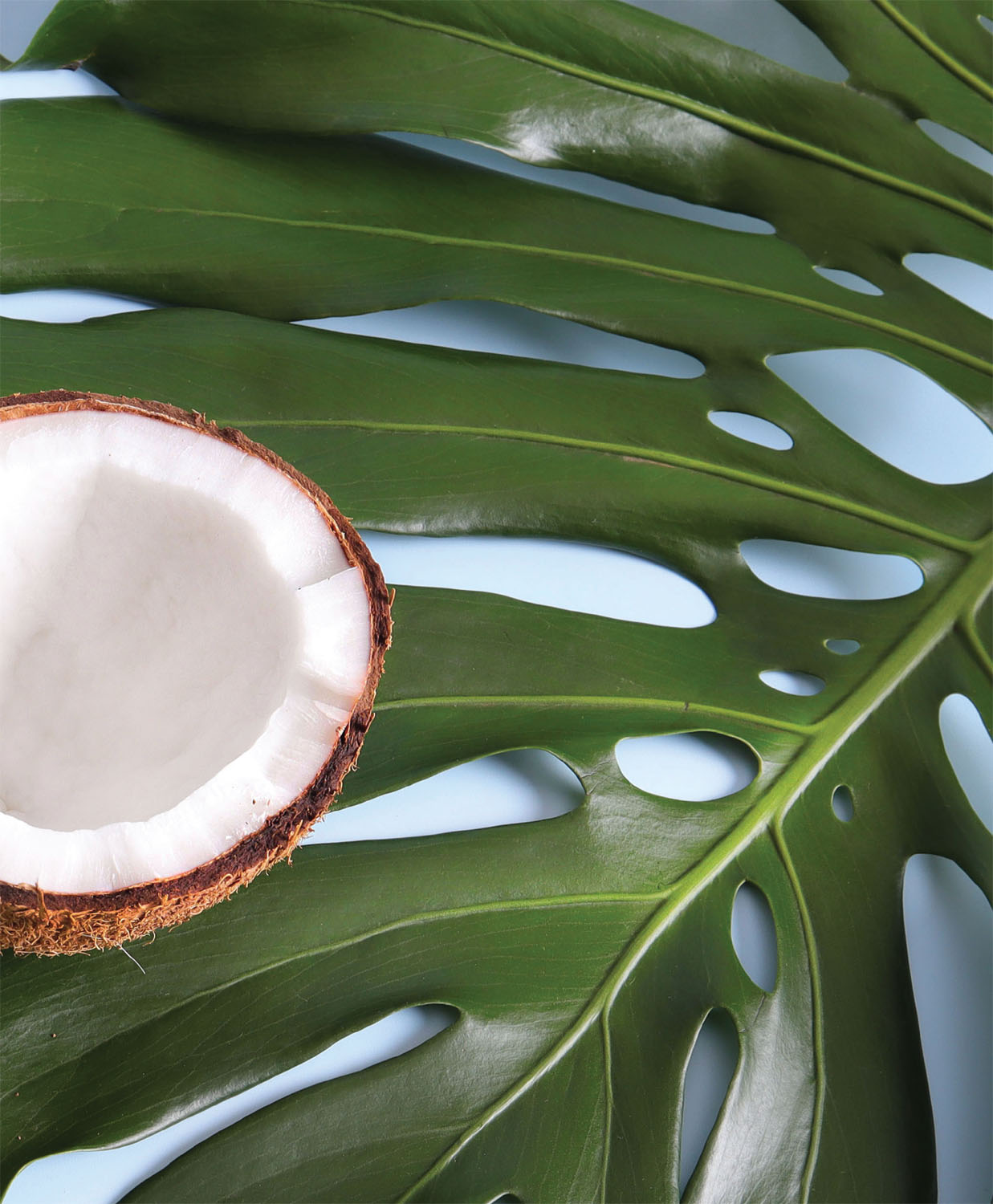 Contents
Contents 
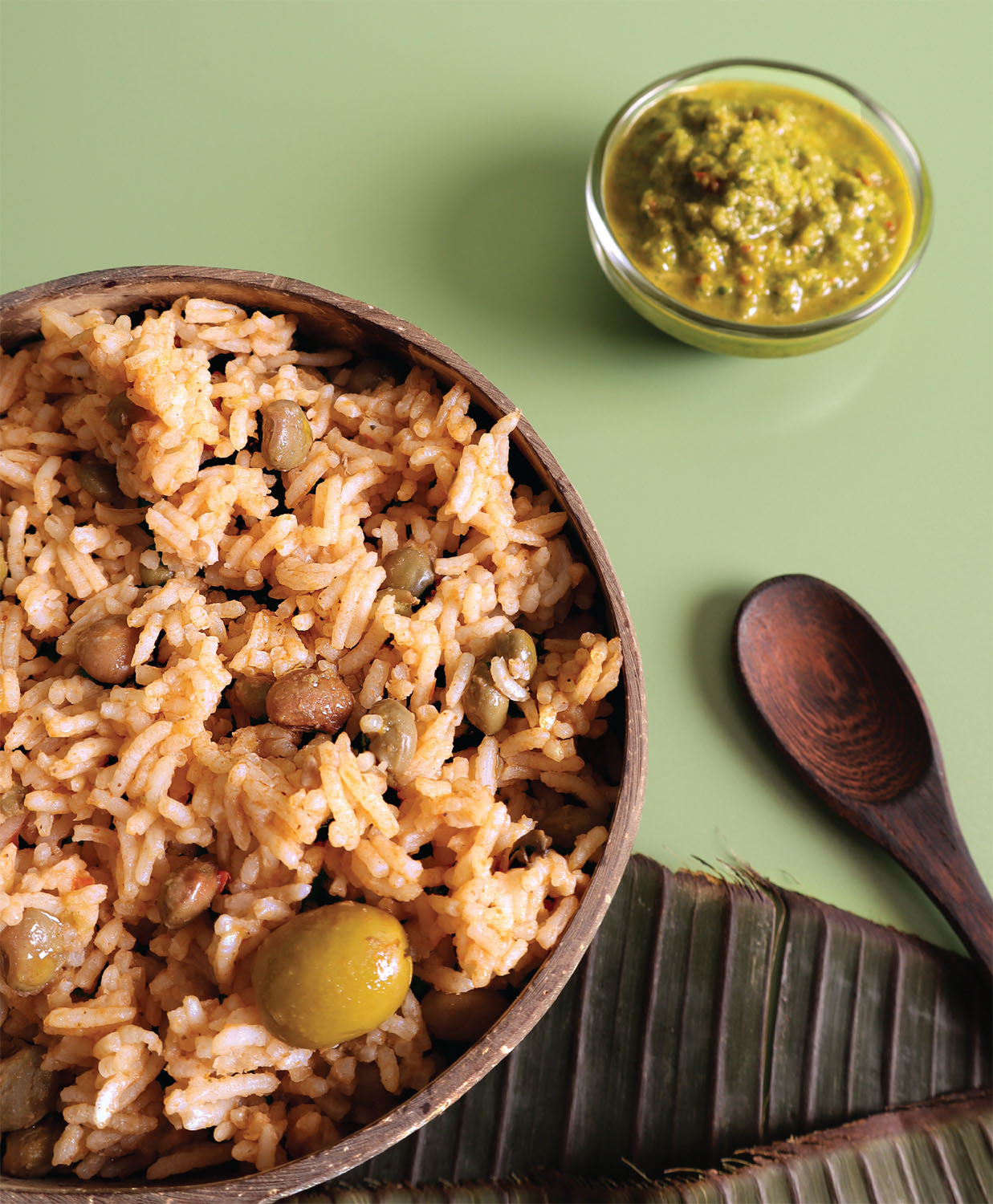 Foreword
Foreword  I found my way to plant-based eating after being diagnosed with cancer, twice.
I found my way to plant-based eating after being diagnosed with cancer, twice.
Since my recovery, Ive been spreading the word about plant-based nutrition as a fundamental tool against fighting diseases. It has been my experience that plants have the power to unlock a healthier, more vibrant life and well-being. Im so glad to see a shift in the world toward embracing this new way to care for ourselves. Karlas take on preserving the culinary traditions of Puerto Rico while incorporating new ingredients is a gift to our community. I hope you discover the power of plants and the secret to well-being through these amazing recipes. En vida y en salud,
Draco Rosa, Puerto Rican singer, musician, songwriter, and plant-based advocate 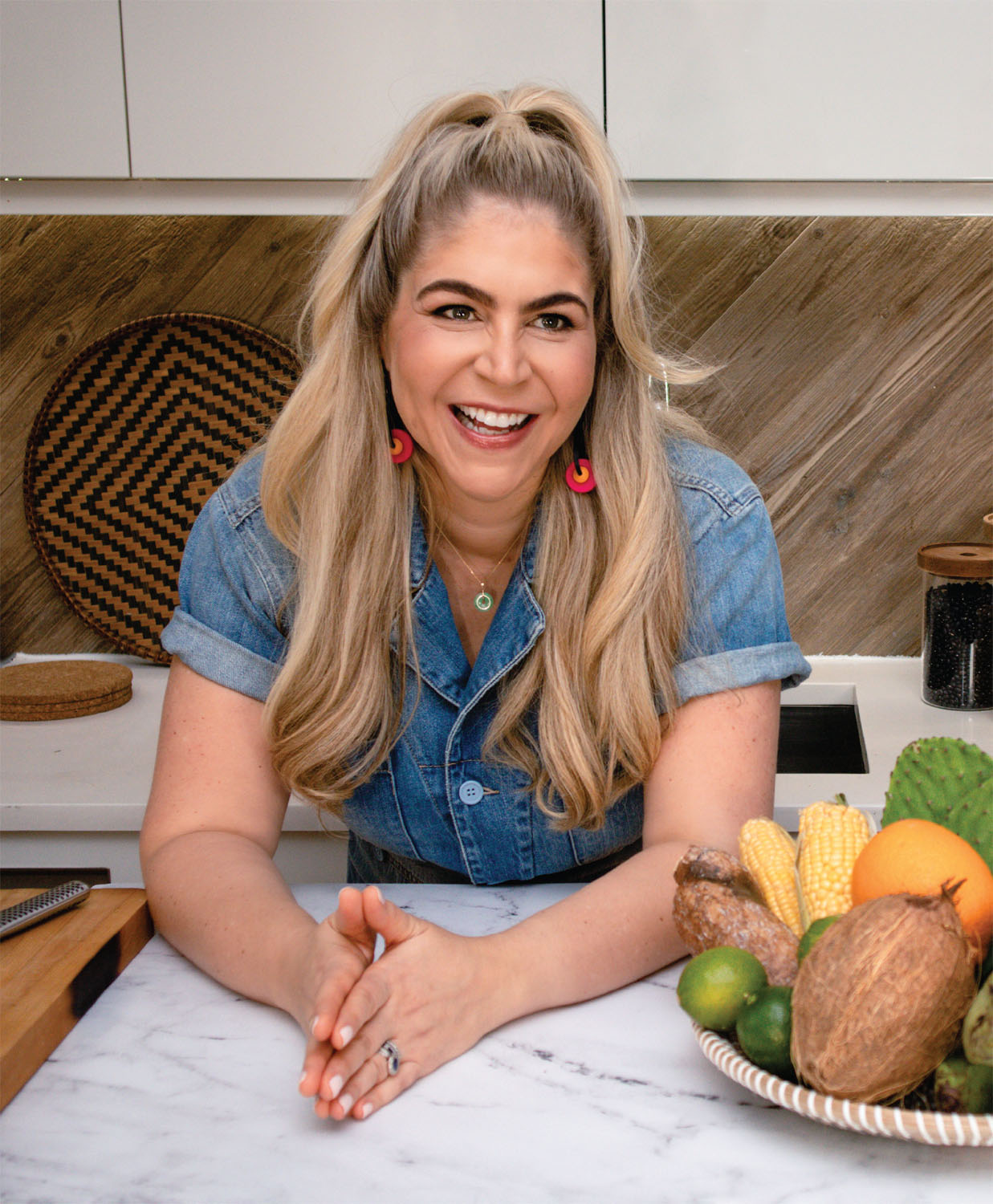 Introduction
Introduction  Lo hice con todo mi amor.
Lo hice con todo mi amor.
Lo hice con todo mi amor is what my mom used to say about the meals she cooked for me: I made it with all my love. My relationship with food has been a journey, but where the journey starts and ends is with love. So, before we go any further, lets go back to the very beginning. Growing up, I lived in two culinary worlds: one in Miami and one in Puerto Rico. My parents divorced when I was young, so I split time between Miami (with my mom and my brother, Manny) and in Puerto Rico (with my dad and his family). While living in Miami, food was my consistent connection to Caribbean culture.
My mom cooked traditional Puerto Rican dishes like steaming, savory plates of arroz con pollo. I had a Cuban stepfather whose background influenced how my mom cooked, too. When I was in Puerto Rico with my dad, on the other hand, I ate differently. He was an early adopter of a plant-based diet, rich in whole foods and vegetables (with the occasional tofu nugget thrown in for me, of course). To me, food was always a signifier of all the places that I called home and of the cultural mash-up that made my family unique. I spent a lot of time with my moms parents, Abuelo and Abuela , and my dads parents, Abi and Mami Abuelita .
A lot of the recipes I grew up eating went back to my grandparents generation. Mami Abuelita kept a composition notebook with recipes written in shorthand. When I started this project, I poured over her aged notebook with its yellowed pages, deciphering her notes and thinking about how I could translate her recipes for this book. I started to see the lineage of my family and where so many of the recipes Id enjoyed growing up came from. I believe that food is always intertwined with our families, our identities, and our memories. When I recall my childhood, Im equally nostalgic when I think of making boxed scalloped potatoes with Manny in Miami and watching my abuela make her famous avena (oatmeal) on her stove top in Puerto Rico .
I loved all the foods that made me who I was. When youre a kid, food is simple. You just enjoy it. For example, when I was little, I loved these little canned sausages, which are super popular in Puerto Rico . I remember peeling the skin and eating them slowly to savor every bite! I didnt think twice about what I ate. I accepted it as a source of joy, comfort, and of course, fuel.
It wasnt until much later that it all got more complicated. When I was pregnant with my daughter, Carolina (we call her Caro), I gained eighty-two pounds. I remember being laser-focused on losing my postpartum weight, instead of stepping back and looking at my mindset around food. I tried countless fad diets and even diet pills. In addition to feeling like a nervous wreck from the pills, nothing ever stuck, and the weight stayed on. There was no way to integrate a restrictive diet into my everyday life because that meant losing out on the foods I loved.
How could I commit to that long term? After a while, I had completely lost my ability to connect with food in the way I always had: from a place of joy. I believe that a big reason why most diets dont work is because they take away our ability to enjoy the foods that nourish our soul and give us a sense of belonging. When I think about that time in my life, I think about how much deprivation and frustration I experienced and how it never gave me the results I wanted. And so, on my maternity leave, alone and afraid that I was in for a lifetime of feeling unwell in my new postpartum body, I started my health journey. I examined my relationship with food, my roots, and how I could integrate the two culinary worlds Id moved between. How could I get back to loving myself and food again? How could I reconnect with my body and give it what it needed? I required a totally different mindset.
I had to approach my health with the love and care that my family had when they fed me. Like most people trying to get healthier, I didnt know where to start. In order to get back to myself, I looked at where I came from. My dad had given me a glimpse into an alternative way of eating and my Aunt Tata and Uncle Soto even had a popular restaurant in Puerto Rico called Restaurante Vegetariano. Their restaurant was ahead of its time, serving up veggie-rich alternatives to classic dishes like pasteln and arroz con gandules in the eighties when vegetarianism was considered unpopular and most Puerto Rican dishes were made using lard, store-bought Sazn with additives and preservatives and meat bouillon cubes. Plant-based eating has never been strange to me, even if Id never fully embraced it for myself.
Next page

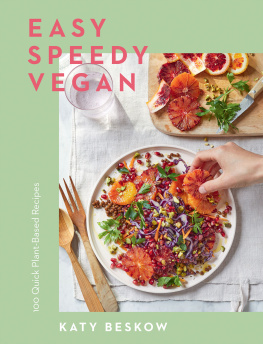

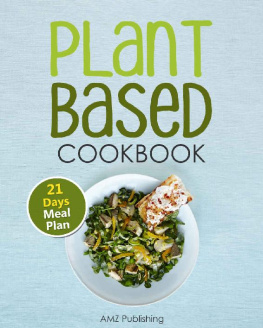

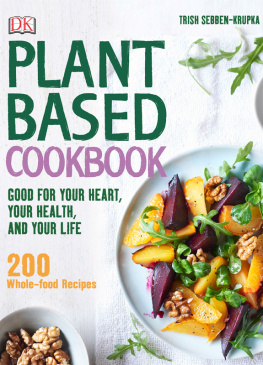
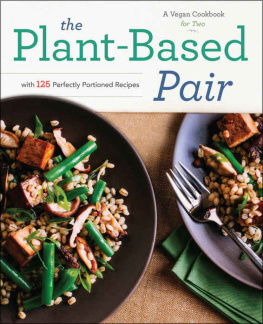



 Copyright 2023 by Karla Salinari Photography 2023 by Zuleika Acosta All rights reserved. No part of this book may be reproduced in any manner without the express written consent of the publisher, except in the case of brief excerpts in critical reviews or articles. All inquiries should be addressed to Skyhorse Publishing, 307 West 36th Street, 11th Floor, New York, NY 10018. Skyhorse Publishing books may be purchased in bulk at special discounts for sales promotion, corporate gifts, fund-raising, or educational purposes. Special editions can also be created to specifications. For details, contact the Special Sales Department, Skyhorse Publishing, 307 West 36th Street, 11th Floor, New York, NY 10018 or .
Copyright 2023 by Karla Salinari Photography 2023 by Zuleika Acosta All rights reserved. No part of this book may be reproduced in any manner without the express written consent of the publisher, except in the case of brief excerpts in critical reviews or articles. All inquiries should be addressed to Skyhorse Publishing, 307 West 36th Street, 11th Floor, New York, NY 10018. Skyhorse Publishing books may be purchased in bulk at special discounts for sales promotion, corporate gifts, fund-raising, or educational purposes. Special editions can also be created to specifications. For details, contact the Special Sales Department, Skyhorse Publishing, 307 West 36th Street, 11th Floor, New York, NY 10018 or . Contents
Contents 
 Foreword
Foreword  Introduction
Introduction